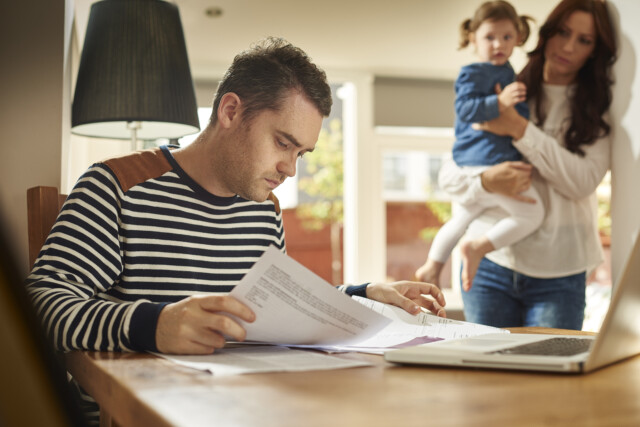
MILLIONS of parents have just weeks left to check their child benefit payments or risk a hefty fine.
Child Benefit is paid to families to help them with the cost of childcare.
You should check if you owe money to HMRC if you receive Child Benefit
But if you or your partner earn over £50,000 a year you have to pay the High Income Child Benefit Charge.
Some parents carry on claiming Child Benefit and paying the charge because it helps you build up national insurance credits which you need to qualify for a state pension.
But if you fail to let HMRC know and don’t pay the tax charge by midnight on January 31 through a self-assessment tax return they can fine you on top of what you owe.
You could be fined up to 30% of what you owe HMRC plus a late filing penalty of £100.
If you file the tax return late by more than three months you’re charged £10 for each additional day (capped at 90 days), in addition to the initial £100 fine.
You can be charged up to a maximum of £1,000.
How do I fill out the self-assessment tax return?
A self-assessment tax return is an online or paper form that has to be submitted to HMRC every year if you owe tax on income you’ve received.
HMRC, HM Revenue and Customs, is a government department that handles the collection of taxes.
Millions of people have to file self-assessment tax returns every year, including those that pay the High Income Child Benefit Charge.
Before you can complete and submit a tax return you need a unique taxpayer reference (UTR) and activation code from HMRC.
HMRC should send you this in a letter after you’ve registered with them online.
You then have to sign in and register by visiting the “Self Assessment tax return” section of HMRC’s website.
HMRC accepts your payment on the date you make it, not the date it reaches its account.
Filling in a tax return can be tricky, so if you need help you can read our guide on how to here.
What is the high income child benefit charge?
Child benefit is given to families bringing up a child under 16 or under 20 if they’re in “approved” education or training.
There’s no limit to how many children you can claim for.
The benefit is worth £21.80 a week for your eldest or only child, then £14.45 per child for any additional children.
However, if you or your partner individually earn over £50,000 you have to start paying back some of your child benefit.
If your income is between £50,000 and £60,000 the charge is 1% of your child benefit for every £100 between those two figures.
If your income goes over £60,000 all your child benefit is taken away.
This means couples can have a combined income of up to £100,000 without having their child benefit deducted.
The benefit amount can be passed on to family members who look after your children.
But that parent has to be claiming child benefit already.
If your income is over the threshold, you can choose to still get payments and pay any tax charges to HMRC at the end of each tax year.
Or, you can opt out of getting payments and not pay the tax charge.
In other news, thousands could claim up to £300 in free cash to help tie them over this winter.
Plus, Martin Lewis’ MoneySavingExpert.com has warned one million Brits overpaid on NHS prescriptions in 2022.
Do you have a money problem that needs sorting? Get in touch by emailing [email protected]







